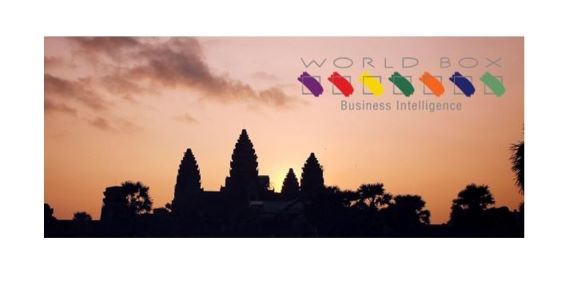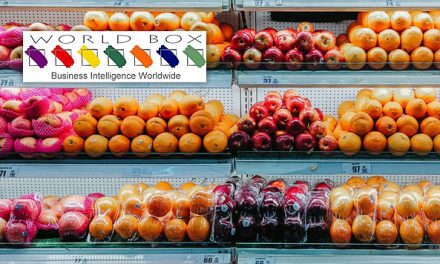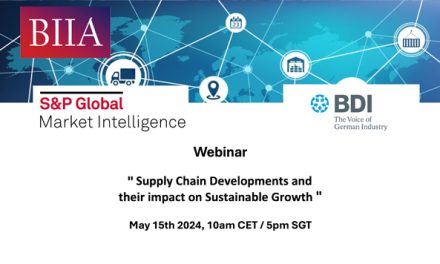Cambodia
Summary
Overall score 19 Stable
Political risk: Stable, 6/10
Economic risk: Stable, 7/10
Commercial risk: Stable, 6/10
The risk assessment of a country is made up of 3 components, being Political, Economic and Commercial. Each component is scored out of 10 with 1 being the lowest risk and 10 the highest.
Political Risk – Stable at 6
Cambodia has enjoyed political stability since the late 1990s and there is little indication that this will change in the foreseeable future. Prime Minister Hun Sen has led the country for 37 years and appears to have consolidated his already strong grip on power in recent years. The 69-year-old Hun Sen is reportedly grooming his eldest son Hun Manet, a four-star general educated in the UK and the United States, to take over the leadership. However, Manet is unlikely to do so any time soon. In December 2021, Hun Sen said he intended to remain prime minister for the next 10 years.
In 2017, the Supreme Court dissolved the only significant opposition party, the Cambodia National Rescue Party, which won 45 per cent of the vote at the July 2013 national election. Many of its leaders fled the country, while others were arrested and charged with treason. Unsurprisingly, Hun Sen’s Cambodian People’s Party (CPP) won every seat at the 2018 election. Cambodia faces new local and national elections in June 2022 and July 2023 effectively as a single-party state.
The media now faces strict controls on what it can report, and has been neutered by the authorities. The Cambodia Daily, an English-language daily known for its investigative journalism, was forced to close after receiving a huge tax bill. Another independent newspaper, ´The Phnom Penh Post´ was acquired by a businessman, allegedly with close links to the government, after it also received a large tax bill.
Economic recovery from the COVID-19 pandemic should boost popular support for the government. By May 2022, around 92% of the adult population had been fully vaccinated, one of the highest vaccination rates in the region.
Economic Risk – Stable at 7
Cambodia experienced some of the highest economic growth in the world in the two decades prior to the pandemic. Driven by garment exports and tourism, annual growth averaged 7.7% between 1998 and 2019. The country made the transition to lower middle-income status in 2015, with the ambition of achieving upper middle-income status by 2030.
Despite extensive government support, the pandemic has had a significant impact on the economy, which shrank by 3.1% in 2020, down from the 7.1% expansion achieved in 2019, according to the IMF, which concluded its 2021 Article IV Consultation with Cambodia in December 2021. However, the economy expanded by faster-than-expected 3% in 2021 and growth is expected to accelerate this year and next (see August bulletin for forecasts).
Cambodia attracted more than US$3.5 billion in foreign direct investment (FDI) in 2021, 11% than the previous year, despite the crackdown on political opponents. Total FDI in the kingdom amounted to over US$41 billion by the end of 2021 and the country registered another US$2.1 billion in the first three months of 2022.
Clearly, continuous concerns over human rights appear to have had little impact on economic growth and foreign investment. This is partly explained by the source of the investments – Chinese investors accounted for around half – yet there is little sign of a fall in FDI from other countries. The other mains sources of FDI are Taiwan, South Korea, Vietnam, Singapore, Japan and Malaysia.
In terms of sectors, finance topped the FDI list, attracting US$9.4bn, followed by manufacturing (US$8.5 billion), real estate (US$4.9 billion), hotels and restaurants (US$4.4 billion), agriculture (US$4.2 billion), electricity (US$2.6 billion) and construction (US$1.6 billion), with US$5.3 billion flowing into other sectors.
However, relations with traditional Western partners, the EU and the United States, have deteriorated further since the flawed national elections in 2018, when repression of the political opposition and local media drew international criticism. In May 2020, the EU implemented trade sanctions, reversing Cambodia’s preferential access to the European market under the Everything But Arms (EBA) programme.
Cambodia shipped 26.8% of its exports to European markets in 2019, of which more than 90% were exempt from custom duties. Meanwhile, the United States has imposed sanctions against government officials and threatened to withdraw its preferential trade agreements with Cambodia. The US is particularly concerned about Cambodia’s ever closer ties with China and fears that Beijing could open a naval base in the country. Work on upgrading the Ream naval base, funded by China, began in early 2022, apparently confirming Washington´s fears.
Cambodia has responded to Western sanctions by redoubling its efforts to strengthen ties with China, which is now its largest trading partner. The two countries signed a free-trade agreement on 15 November 2020. In the short term, however, Cambodia is expected to remain highly dependent on its main customers, namely the European Union and the United States.
Cambodia is particularly vulnerable to climate change, as indicated by recent droughts and floods, the IMF reports.
Commercial Risk – Stable at 6
Cambodia rated as one of the most difficult countries in the Asia–Pacific region in which to do business. It ranked 144 among 190, according to the 2021 World Bank Ease of Doing Business guide. This ranking is ahead of only Myanmar and Laos in Southeast Asia.
Foreign investors often complain that the decisions of Cambodian regulatory agencies are inconsistent, irrational or corrupt. Infringement of intellectual property rights is widespread, with Cambodia reportedly becoming an increasingly popular source of pirated material due to weak enforcement.
Cambodia ranks joint 160th out of 180 countries in Transparency International’s (TI) 2021 Corruption Perceptions Index. The country continues to occupy the third-lowest spot in the Asia–Pacific region, coming above only Afghanistan and North Korea, and the lowest spot in ASEAN. However, TI reported that the country had made some progress, including efforts to reduce corruption in the private sector, reform public financial management (mainly through the strengthening of resource mobilisation), foster e-government and improve public services, particularly in response to COVID-19.
The Cambodia Corruption Report by GAN provides confirmation of the rampant nature of corruption in the country. It warns companies to expect extensive red tape to obtain the proper licences and business permits. GAN adds that corruption among judges, prosecutors and court officials is widespread, and consequently businesses tend to avoid the court system and seek to resolve commercial disputes through negotiations facilitated by the Ministry of Commerce, the Council for the Development of Cambodia, the Chamber of Commerce, or other involved institutions. In September 2021, the World Justice Project, a Washington-based independent group that promotes rule of law, ranked Cambodia next to last – ahead only of Venezuela – in its global Rule of Law Index for 2021.
August bulletin
Political Risk – Stable 6/10
Hun Sen and the Cambodian People’s Party (CPP) show little sign of relaxing their grip on power. Having outlawed the only significant opposition party, the Cambodia National Rescue Party, the CPP – currently the only party in the National Assembly – looks set for another clean sweep at local and national elections in June 2022 and July 2023.
However, the party could face growing internal dissent, particularly if the economy fails to recover rapidly. The CPP lost many of its strongholds in the 2013 general elections and the 2017 communal polls, while 70% of Cambodia’s population lack access to quality education and employment with living wages, providing a fertile ground for the growth of political dissent.
In April 2023 Hun Sen confirmed that he would stand in the 2023 general election but added that his West Point-educated son Hun Manet, chosen to be the future premier candidate for CPP, could succeed him at any time. General Manet, 44, who is also the deputy commander-in-chief of the military, was unanimously elected by the party’s Central Committee to be the future Prime Minister at the end of 2023. However, Manet is unlikely to take over any time soon. In December 2021, Hun Sen said he intended to remain prime minister for the next 10 years.
Economic Risk – Stable 7/10
The economy is forecast to grow by 4.5% in 2022, according to a World Bank report published in April 2022. The bank believes that the rollback of travel restrictions prompted by a high national Covid-19 vaccination rate should support the economic recovery. The domestic economy and agricultural exports should drive the expansion. However, it warned that growth could slip to 3.8% because of the deterioration in domestic economic conditions caused by rising inflation, and slowing external demand.
The World Bank cites a cyclical decline in the US, and a structural slowdown in China as potential hazards. Furthermore, hikes in energy and food prices due to the conflict in Ukraine is expected to reduce the pace of poverty reduction as it weighs on household budgets.
The Asian Development Bank takes a more optimistic view, predicting GDP growth of 5.3% in 2022 and 6.5% in 2023 in its Asian Development Outlook 2022 report. It cited an expansion in the economies of major trading partners which will help support the strong momentum of Cambodia’s merchandise exports and inflows of foreign direct investment.
The ADB forecasts inflation will accelerate to an average 4.7% in 2022 on surging energy prices caused by the Russian invasion of Ukraine and broader domestic demand. The pressure on consumer prices is expected to moderate in 2023, when the inflation rate is forecast to average 2.2%.
The garment, footwear and travel goods industry has flourished despite the pandemic. Lockdowns and temporary factory closures hit production in 2020 but output resumed in 2021 and the sector´s exports increased by 15.2% in 2021 to US$11.38 billion. The industry is Cambodia´s largest foreign exchange earner and consists of around 1,100 factories and branches, employing approximately 750,000 workers, mostly female, according to the Labor Ministry.
Cambodia may also reap the rewards of global manufacturers shifting production to Southeast Asia if relations between China and the West continue to sour in 2022.
By the end of April 2022, Cambodia had lifted most of the travel restrictions implemented as a result of the pandemic, which should boost investment and tourism. However, the road to recovery for the tourism sector at least is likely to prove long and hard. Prior to the pandemic, 36% of tourist arrivals to Cambodia came from China, and Beijing is likely to deter outbound tourism for at least the rest of 2022. The country earned US$4.919 billion in 2019, prior to the pandemic, or around a quarter of GDP. In 2021 that figure fell to just US$184 million. Tourism also generated two million jobs according to the World Bank.
Commercial Risk – Stable 6/10
The Cambodian financial system has weathered the pandemic well and has relatively low levels of non-performing loans. Cambodian banks face challenges as support programmes introduced by the central bank come to an end. These programmes were introduced in March 2020 to avoid widespread defaults in the key industries of garment manufacturing, construction and tourism. Financial institutions restructured $5.2 billion worth of loans, equal to about 20% of GDP. The restructuring programme is due to be phased out at the end of June.
In December 2021, the IMF warned the “surge” in restructured loans added to the “highly uncertain” outlook facing the country in the years to come. It added that “losses on restructured loans could weaken capital positions and potentially undermine the ability of the financial sector to finance the recovery,” and that “results from bank stress tests and the extra reporting will allow the central bank to implement a carefully calibrated sequence of steps to gradually return to standard prudential requirements.”
The IMF has also warned that lending to the real-estate sector has grown rapidly, is largely unregulated and could pose a risk.
Counterparty risk, already difficult to assess, given that the availability and reliability of corporate financial information varies widely, has almost certainly risen during the pandemic. This is particularly true of the sectors worst hit by the pandemic, including tourism, transport and real estate.
Latest economic data
About Worldbox Business Intelligence
An independent service, Worldbox Business Intelligence provides online company credit reports, company profiles, company ownership and management reports, legal status and history details, as well as financial and other business information on more than 50 million companies worldwide, covering all emerging and major markets.
Worldbox was founded in the 1980s, with the vision to become a global business provider. Its ability to deliver data in multiple languages in a standard format has strengthened its brand.
Copyright (C) 2022 Worldbox Business Intelligence. All rights reserved.
Our mailing address is:
Worldbox Business Intelligence
Breitackerstrasse 1
Zollikon
Zurich 8702
Switzerland





























